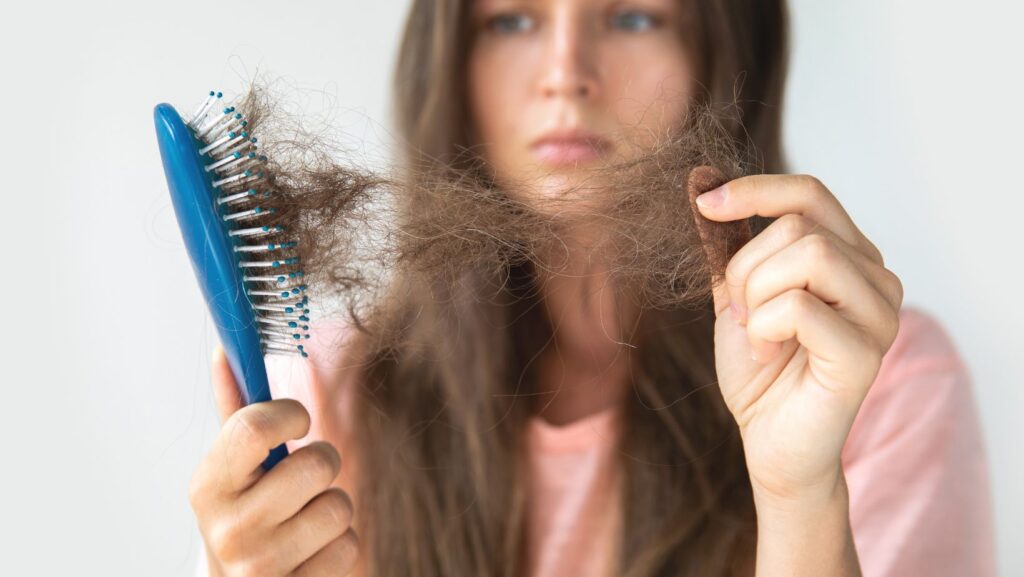If you’re experiencing hair loss and looking for solutions, understanding the root causes and exploring natural remedies can help you take control of the situation. For those seeking professional help, there are advanced hair loss treatments in Singapore that offer effective solutions tailored to your specific needs.
Common Causes of Hair Loss
Hair loss can be temporary or permanent, depending on its cause. Here are some of the most common reasons people experience hair loss:
Genetics (Androgenic Alopecia)
Androgenic alopecia, commonly known as male or female pattern baldness, is the most common cause of hair loss. This hereditary condition affects millions of people, often resulting in gradual thinning and receding hairlines in men or thinning around the crown in women. While it is more prevalent with age, genetic factors can trigger it as early as a person’s 20s or 30s.
Hormonal Imbalances
Hormonal changes, particularly in women, can lead to hair loss. Pregnancy, childbirth, menopause, and thyroid issues can disrupt hormone levels and contribute to temporary hair thinning. The hormone dihydrotestosterone (DHT) is another culprit that shrinks hair follicles, leading to androgenic alopecia.
Stress and Emotional Factors
Chronic stress can push hair follicles into a resting phase, causing hair to fall out more easily. This condition, known as telogen effluvium, often occurs after a period of emotional or physical stress. Hair typically grows back when the stress subsides, but ongoing anxiety or trauma can prolong the issue.
Nutritional Deficiencies
Lack of proper nutrition can impact hair health. Low levels of iron, protein, vitamins, and essential fatty acids can weaken hair strands and slow growth. Nutrients like biotin, zinc, and vitamins A, D, and E play crucial roles in maintaining healthy hair.
Medical Conditions and Medications
Several medical conditions, such as alopecia areata, an autoimmune disorder that attacks hair follicles, can cause sudden hair loss.

Additionally, chemotherapy, radiation, and certain medications can lead to temporary hair shedding. Conditions like anemia, lupus, and scalp infections can also contribute to hair loss.
Lifestyle Factors
Excessive use of heat styling tools, harsh hair treatments, or tight hairstyles that pull on the scalp can damage hair follicles, leading to hair breakage and loss over time. Smoking and excessive alcohol consumption can also negatively affect scalp health and hair growth.
Natural Remedies for Hair Loss
For those looking to manage hair loss naturally, several remedies and lifestyle changes can help improve hair strength and promote regrowth:
Scalp Massage
Massaging your scalp regularly increases blood flow to the hair follicles, promoting hair growth and thickness. You can use essential oils like rosemary, lavender, or peppermint mixed with a carrier oil, such as coconut or olive oil, to enhance the massage. These oils are believed to stimulate hair growth and improve scalp health.
Balanced Diet
A nutritious diet rich in vitamins and minerals is essential for healthy hair. Make sure you’re eating foods high in protein, such as eggs, lean meats, and legumes, as well as foods rich in iron, zinc, and vitamins. Adding leafy greens, nuts, seeds, and fish to your meals can also help nourish hair from the inside out.
Aloe Vera
Aloe vera is known for its soothing properties and has been used for centuries to promote scalp health. Applying aloe vera gel to your scalp can help reduce dandruff, unblock hair follicles, and improve hair strength.
Onion Juice
Onion juice is a popular home remedy for hair loss due to its high sulfur content, which is believed to boost circulation and regrow hair. Apply freshly extracted onion juice to the scalp, leave it on for 30 minutes, and then wash it off.

While it may not be the most pleasant-smelling option, many have found it effective in promoting hair growth.
Avoiding Harsh Chemicals
Opt for gentle, sulfate-free shampoos and conditioners to avoid stripping your hair of its natural oils. Overusing chemical-based hair dyes, relaxers, or perms can weaken hair shafts and cause breakage. Choosing more natural, nourishing products can help maintain healthier hair.
Reducing Stress
Managing stress through meditation, yoga, or other relaxation techniques can have a positive impact on hair health. Since stress is a common cause of hair loss, learning to cope with stressful situations may help reduce hair shedding.
When to Seek Professional Help
While natural remedies and lifestyle changes can be helpful, some cases of hair loss may require medical intervention. If your hair loss is sudden, excessive, or accompanied by other symptoms, it’s important to consult with a healthcare provider or dermatologist.
In Singapore, various advanced hair loss treatments are available, including laser therapy, PRP (platelet-rich plasma), and hair transplants. If you’re considering professional treatment, it’s essential to work with a specialist who can assess the underlying causes of your hair loss and recommend the most suitable solutions.
Conclusion
Hair loss is a common issue, but it doesn’t have to be permanent or inevitable. By understanding the causes and exploring natural remedies, you can take steps to support hair health and even regrow lost hair. Whether you choose to try home remedies or seek out professional hair loss treatments in Singapore, it’s important to find an approach that works best for your unique needs.

